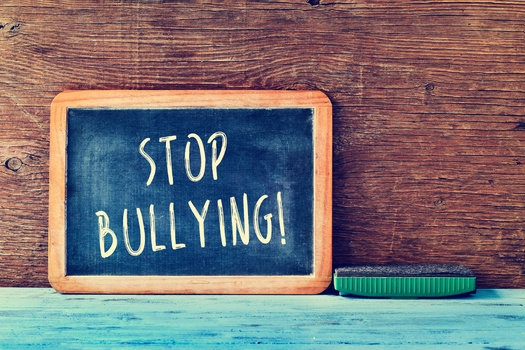
October is National Bullying Prevention Awareness Month, and experts are reminding Hoosiers to be aware of the patterns within bullying.
One in five students reports being bullied, says the National Center for Education Statistics. Cyberbullying has come to the forefront as a problem, but experts say there's frequently an offline component as well.
The Indiana Department of Education reported 5,100 incidents of school bullying across the state in the last school year.
Jan Helson is the co-founder and board chair of the Global Game Changers Children's Education Initiative, a nonprofit focused on social-emotional learning. She said building confidence and empathy are key in helping to prevent bullying.
"If you build a child's core where they feel confident about themselves and who they are, and have empathy for others, then it helps to avoid bullying in the first place," Helson asserted.
Indiana has anti-bullying laws in schools, but they don't cover off-campus conduct. Students who are bullied are at a higher risk for depression, anxiety and sleep problems, along with lower academic achievement and a higher risk of dropping out of school.
Research suggests school-based anti-bullying programs decrease bullying by 20%. No matter the approach, Helson emphasized it is important for students to remain in dialogue with parents and teachers.
"Whether it's a teacher communicating with students, or whether it's a parent communicating is to really stress the importance of opening up that dialogue and providing your child a safe space and looking for those signs, whether they are the victim or the bully," Helson outlined. "Parents have to be open-minded to both sides of that."
Helson explained the root cause of bullying often is the bully's own insecurity, and noted it is helpful to consider the inner life of the bully.
"What is it about their background? I think having children understand and have empathy that maybe that bully has something going on in their life that they have no control over," Helson advised. "It's a way of them feeling like they have control of something, making them feel bigger than others."
She added empathy for the bully does not mean accepting their behavior, but giving students insight into the lives of others may help break down the barriers with bullies.
Bullying statistics Nat'l Bullying Center Nov. 2020
Bullying laws Cyberbullying Research Center 2022
Anti-bullying programs Congressional Research Service 10/18/2013
By Brett Peveto, Producer
Monday, October 31, 2022
